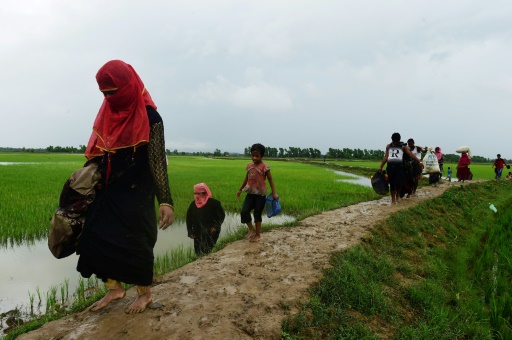United Nations Secretary General Antonio Guterres stated on Wednesday that the ongoing Myanmar crackdown on Rohingya, a Muslim-majority minority, is an example of ethnic cleansing.
“When one-third of Rohingya population had to flee, can you find a better word to describe it?” Mr. Guterres told reporters. The secretary general was asked whether he agreed with the definition used by Zeid Ra’ad al-Hussein, the United Nations high commissioner for human rights.
“The situation seems a textbook example of ethnic cleansing,” the U.N. top human rights official stated on Monday.
At the news conference in New York City, Mr. Guterres urged parties to end the conflict that spun out of control, prompting some 370,000 people to flee Myanmar for neighboring Bangladesh.
“The Muslims of Rakhine State must be granted nationality or, at least for now, a legal status that allows them to lead a normal life, including freedom of movement and access to labor markets, education and health services,” Mr. Guterres said in his renewed plea to the government of Myanmar.
At present, Rohingya are denied citizenship and deprived of freedom of movement, along with the right to education and work.
Mr. Guterres noted that the humanitarian situation in Myanmar is catastrophic. He said the country’s authorities are blocking aid efforts of international organizations and U.N. agencies.
“I call on the Myanmar authorities to suspend military action, end the violence, uphold the rule of law, recognize the right of the return of all those who had to leave the country,” the secretary general added.
Mr. Guterres’ renewed his call after the office of Myanmar’s de facto leader Aung San Suu Kyi announced that she would skip the annual U.N. General Assembly meeting in late September.
The world media interpreted the decision of the Nobel Peace Prize winner as an attempt to avoid international criticism at the U.N. gathering. Her office stated, however, that she would not be able to attend the event because of the “Rakhine terrorist attacks.”
“The state counselor is focusing to calm the situation in Rakhine state,” Associated Press quoted her spokesperson Zaw Htay as saying. Other reasons cited for the decision included riots in some areas and military intelligence reports about possible “terrorist attacks.”





















